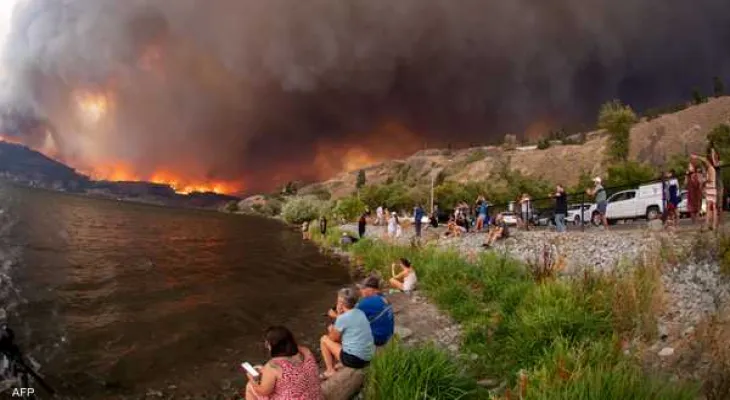Search here
Newspaper
Search here

Arab Canada News
News

Published: September 3, 2023
Canada is experiencing the largest wildfires in its history, which has caused significant economic losses, leaving the population in great fear, especially since Canada is facing the biggest wildfires this year, which have so far ravaged around 16 million hectares of land, leading to the displacement of 200,000 people, particularly in the west and north of the country, threatening to have long-term negative repercussions on businesses and the economy in general.
Activity has halted in many areas due to the fires, and several sectors have been affected, with increasing costs of the fires and economic damage in this G7 country.
Many residents in this area have complained about the impact of the fires on vineyards, both in terms of visits and sales.
The fires have destroyed more than two hundred residences in this rich tourist area of British Columbia.
Tourism revenues have sharply declined this year as visitors have avoided traveling to the area that has been ablaze for weeks.
The vineyards in the wine-producing region did not suffer direct damage from the fires, but with the temporary closure of the airport and the main public road leading to the city of Kelowna, weddings, wine tasting tours, and other activities usually held there have been canceled.
Analyst Stephen Brown from "Capital Economics" noted in a memo that wildfires generally do not have significant repercussions on the economy in Canada, according to an AFP report.
However, this year is different, as he pointed out that "with the fires spreading to this extent, we see a greater impact than usual."
He continued, "It seems that the worst wildfires Canada has ever known are behind a large part of the recent decline in GDP, and with evacuation orders now extending to more areas, the numbers are likely to remain poor in the coming months."
Among the factors contributing to this economic decline, James Orlando from TD Bank mentioned, "the wildfires that disrupted oil and gas production in May curtailed consumer activity in June," also noting damage to the lumber sector, which employs over 30,000 people across Canada.
The "Oxford Economics" Institute warned in a report in June that the fires could cost the Canadian economy between 0.3 and 0.6 percentage points of its growth.
However, Tony Steelo from "Oxford Economics" considered that the toll "is not as bad as could have been expected."
He stated, "Even though the wildfires are historic in terms of their size, they are occurring in somewhat remote areas, with less impact on large population centers, economic hubs, and transportation routes, which might have led to supply chain disruptions."
Ottawa estimated in its new plan to adapt to climate change that the annual cost of combating wildfires is about one billion Canadian dollars (737 million dollars).
It pointed out, based on the Canadian Climate Institute, that climate change, which exacerbates droughts and thus increases the likelihood and frequency of fires, could halve the expected economic growth in Canada in the coming years.
Jason Clark, a worker in this agency, expressed his concern about the situation, noting that Canadians are no longer facing a disaster every decade but "several disasters occurring in a single year," including fires, floods, heat waves, storms, and more.
He said, "When countries regularly incur major losses, this significantly reflects on risk assessments and insurance premiums," affirming, "We need to be better prepared."
Comments